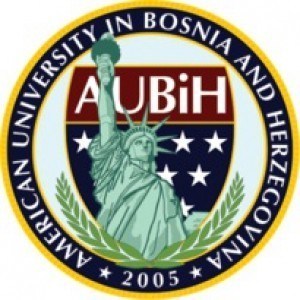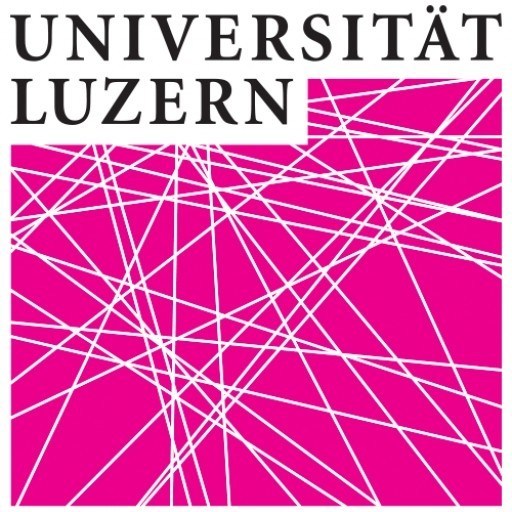Photos of university / #brownu
Religious Studies explores religious thought and practice in various historical, political, cultural, and social contexts in order to understand and interpret societies and cultures throughout the world. It fosters scholarly skills such as close reading (of texts, images, artifacts, and other social data), excellence in writing and verbal expression, interpretation of the past and present from multiple forms of evidence, and assessment of contemporary social issues. By exploring the public and private concerns that the study of religion highlights -- for example, the creation of community, the nature of the individual, suffering and death, notions of good and evil -- students discover new ways of engaging the complex world in which they live. As students examine religious activity in the Americas, South and East Asia, the Middle East and West Asia, Africa, and Europe, they not only learn about the formation and transmission of beliefs, behaviors, values, rituals, and identities but also come to understand how diverse peoples have expressed religious understandings of themselves and others through politics, institutions, conflicts, and spaces commonly recognized as secular.
A concentration in Religious Studies includes a minimum of nine semester-long courses. Those nine courses include RELS 1000 (a seminar in methods in the study of religion) and eight other courses, which must satisfy the concentration's distribution requirements. Students who transfer to Brown or study abroad must complete at least five courses in Religious Studies at Brown.
2. Distribution of Introductory, Intermediate, and Advanced courses:
Among the eight concentration courses, no more than four courses (out of nine) can be at the introductory level (0001-0199). In addition to any introductory courses and RELS 1000, the plan of study must include at least two intermediate-level courses (0200-0999) and two advanced-level courses (above 1000).
3. Geographic and Methodological Distribution:
In order to ensure that students study a diversity of religious traditions and learn about multiple methods of study, the eight concentration courses (that is, the courses other than RELS 1000) must: 1) reflect more than one approach to the study of religion (e.g., philosophical, anthropological, historical); and 2) examine more than one religious tradition. To ensure that students examine multiple traditions, the plan of study ordinarily should include two or more courses in each of these areas: A) Traditions that merge from the Mediterranean world and West Asia/Islamic World (e.g., Judaism, Christianity, Islam); and B) Traditions that emerge from South and East Asia (e.g., Buddhism, Hinduism, Daoism).
| A. Traditions that emerge from the Mediterranean world and West Asia/Islamic World (e.g., Christianity, Judaism, Islam) | ||
|
RELS 0015 |
Sacred Stories | |
|
RELS 0025 |
Wealth: Religious Approaches | |
|
RELS 0035 |
The Bible and Moral Debate (JUDS 0060) | |
|
RELS 0052 |
Love and Reason | |
|
RELS 0055 |
Modern Problems of Belief | |
|
RELS 0056 |
Spiritual But Not Religious: Making Spirituality in America | |
|
RELS 0065 |
On Being Human: Religious and Philosophical Conceptions of Self | |
|
RELS 0068 |
Religion and Torture | |
|
RELS 0090J |
Death and Afterlife in the Biblical Tradition | |
|
RELS 0090K |
Christmas in America | |
|
RELS 0260 |
Religion Gone Wild: Spirituality and the Environment | |
|
RELS 0290D |
Islamic Sexualities | |
|
RELS 0322 |
Great Jewish Books (JUDS 0681) | |
|
RELS 0325 |
How the Bible Became Holy | |
|
RELS 0405 |
Jesus and the Gospels | |
|
RELS 0410 |
Christianity in Late Antiquity | |
|
RELS 0600B |
Islam in America | |
|
RELS 0600C |
Radical Islam: Significant Moments in Contemporary Media | |
|
RELS 0810 |
Conservatives vs. Liberals: Religion and Identity in America | |
|
RELS 0820 |
African American Religious Strategies: Martin and Malcolm | |
|
RELS 0830 |
Religion, Reason, and Ethics from Kant to Nietzsche | |
|
RELS 0842 |
A Game of Thrones: Religion and Nationalism, 1789-1933 (JUDS 0700) | |
|
RELS 0845 |
Religious Freedom in America | |
|
RELS 0880E |
War and Peace in the Hebrew Bible and its Environment (JUDS 0670) | |
|
RELS 0880F |
Sex and Gender in Ancient Israel (JUDS 0671) | |
|
RELS 1000 |
Methods in Religious Studies | |
|
RELS 1050A |
Problems in Israelite Religion and Ancient Judaism (JUDS 1625) | |
|
RELS 1110 |
Mishnah and Tosefta (JUDS 1602) | |
|
RELS 1170B |
The Talmud (JUDS 1630) | |
|
RELS 1211 |
Lords of Middle Sea: Greek and Biblical Myth and Society | |
|
RELS 1300 |
Ancient Christianity and the Sensing Body | |
|
RELS 1325B |
Early Christian Asceticism: Rhetorics of Practice | |
|
RELS 1370B |
Philosophy of Mysticism | |
|
RELS 1380A |
Money, Media, and Religion | |
|
RELS 1380B |
Ethics of Vulnerability | |
|
RELS 1385 |
Religion and Postmodernism | |
|
RELS 1530D |
Islamic Sectarianism | |
|
RELS 1600B |
Prophets and Priests in Exile: Biblical Literature of the 6th Century BCE (JUDS 1690) | |
|
RELS 1830A |
Pragmatism, Religion, and Politics | |
| B. Traditions that emerge from South and East Asia (e.g., Buddhism, Hinduism, Daoism) | ||
|
RELS 0145 |
Karma, Rebirth and Liberation: Life and Death in South Asian Religions | |
|
RELS 0195 |
Japan: Nature, Ritual, and the Arts (EAST 0180) | |
|
RELS 0290E |
Engaged Buddhism | |
|
RELS 0500 |
The Theory and Practice of Buddhist Meditation | |
|
RELS 0520 |
Buddhist Ethical Theory (UNIV 0480) | |
|
RELS 0530 |
Laozi and the Daodejing | |
|
RELS 0580 |
Experiencing the Sacred: Embodiment and Aesthetics in South Asian Religions | |
|
RELS 1190 |
Religious Japan | |
|
RELS 1430 |
Buddhist Classics | |
|
RELS 1440 |
Themes in Japanese Buddhism | |
|
RELS 1442 |
The History, Philosophy, and Practice of Rinzai Zen Buddhism | |
4. Courses in Other Departments
Courses listed in other departments but taught by Religious Studies faculty count toward the program of study. In addition to cross-listed courses taught by Religious Studies faculty, up to three courses taught by faculty in other departments can count toward the program (pending approval by the DUS). Students who transfer to Brown, study abroad, or otherwise petition to include Brown courses not cross-listed with Religious Studies must complete at least five courses in Religious Studies at Brown.
5. Capstone Project
No later than the end of spring registration in the junior year, the concentrator will determine how they will complete a senior capstone project for this requirement - either by selecting a capstone course, or by undertaking an honors thesis. A capstone course will be selected in consultation with the concentration advisor and other faculty as appropriate. Within the frame of this capstone course and through work completed for the course, the concentrator will address the theoretical and interpretive issues of their particular focus in the Religious Studies concentration.
Honors Thesis (Optional)
A thesis is an opportunity for students to conduct extended independent research under the guidance of faculty. If a student chooses to write an honors thesis, in addition to completing the typical eight concentration courses (in addition to RELS 1000) the student will enroll in RELS 1999 during both semesters of the senior year. Whether or not a student receives honors, RELS 1999 will serve as the student's capstone course. To be eligible to write a thesis, a student must have earned a grade point average of greater than 3.5 (A=4, B=3, C=2) on courses that count toward the concentration. Additionally, to be eligible for honors, concentrators may take no more than two of the concentration courses with the "S/NC" option, after declaring a Religious Studies concentration. (Note: if a student is philosophically committed to taking the majority of her or his courses at Brown as "S/NC," that student may petition the Department to waive this "S/NC" limit.) Writing the thesis is a necessary, but not sufficient, condition for receiving Honors. In order to receive Honors, the student's thesis must earn an A from its two readers, and the student must have earned a grade point average of greater than 3.5 in the concentration and satisfied all other concentration requirements.
Requirements
- Test Requirements: Applicants can satisfy our testing requirement in one of two ways: (1) Either the SAT and any two SAT Subject Tests, or (2) the ACT. Applicants who take the redesigned SAT are not required to take the optional writing section. For applicants who take the ACT, we strongly encourage, but do not require, the writing component. Brown will accept test results for either the old or the new SAT.
- Official test results must be sent directly to Brown from either the College Board, which administers the SAT, or from the American College Testing Program, which administers the ACT.
- To have scores sent to Brown, you will need to provide our institutional code numbers:
- For the SAT, Brown's code number is 3094
- For the ACT, Brown's code number is 3800
- You are welcome to take advantage of the College Board's Score Choice option, but this may delay your scores being received by Brown---a delay may mean we will not read your application until we receive a full set of official test scores.
- Please note: we encourage students to have at least one set of scores in our office by the appropriate application deadline.
- An official transcript of your complete high school academic record must be sent to the Office of College Admission directly from each secondary school you have attended.
- We will accept transcripts submitted by your school(s) through online services, such as Docufide, Naviance, and the Common Application. If you are unable to submit through one of these online services arrange to have your materials sent directly to Brown University, Office of College Admission, Box 1876, Providence, RI 02912 or fax to 401.863.9300.
- Your midyear school report including final grades for fall courses and a list of your spring courses can be submitted online through the Common Application.
- Through the Common Application applicants can request school forms and recommendations via email from their guidance counselor and from two teachers who have taught them in major academic subjects (science, social studies, mathematics, foreign language, English).
- If you are considering a Bachelor of Science degree or the Program in Liberal Medical Education, at least one of your recommendations should come from a math or science teacher. In addition, we highly recommend that applicants to the PLME program submit results for at least one science SAT Subject Test.
- Please note: secondary school personnel do not need to wait until you have submitted your application before making their contributions. The online system will lead you through the process of supplying the name and email address of your counselor and teachers so that a user account can be created for them. They will then be able to submit forms on your behalf either electronically or via regular mail.
- Please note: applicants are neither required nor expected to provide additional materials, but the opportunity to do so is available to any candidate. Applicants are not expected to provide additional materials as part of the admission process.
- We prefer that you upload supplementary materials to your file after you receive your Brown account username.
- We recommend that you do not send a collection of award certificates or similar materials.
- If you are accomplished in music or visual art, you may include additional supplements along with your application in the Common Application, through SlideRoom. You do not need to wait for your Brown account username to upload music or visual art materials to SlideRoom.
- Please note: SlideRoom only accepts one submission, if submitting two you will need to sign up with a second email account.
- Auditions and portfolio reviews are neither required nor reviewed for students interested in Theatre Arts & Performance Studies.
- If you have a YouTube video we recommend uploading the link via our self-service site once you receive your Brown account username.
Want to improve your English level for admission?
Prepare for the program requirements with English Online by the British Council.
- ✔️ Flexible study schedule
- ✔️ Experienced teachers
- ✔️ Certificate upon completion
📘 Recommended for students with an IELTS level of 6.0 or below.









